
23 Feb The Role of Cloud Services in Mitigating Network Congestion
Slow network? The impact of network congestion on business operations can range from decreased productivity and customer experience to increased cybersecurity risks.
Cloud services can play a role in mitigating the effects of network congestion by providing scalable and flexible network infrastructure.
What is Network Congestion?
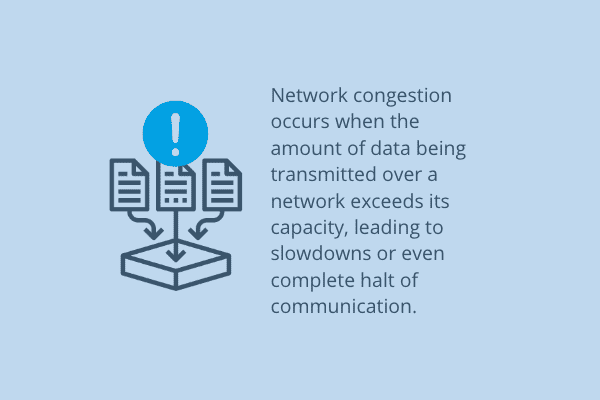
This can occur when too many users try to access a network at the same time, or when large amounts of data are being transmitted in a short period of time.
During times of increased resource demand, the network becomes congested, and data packets can get lost or delayed.
Network congestion can result in slow performance, increased risk from cyber-attacks, lower productivity, and decreased customer satisfaction.
What Causes Network Congestion?
The amount of data being transmitted over networks is increasing rapidly. Additionally, the reliance on applications such as video conferencing and other collaborative tools favored by remote teams contributes to network congestion. These applications require large amounts of bandwidth to transmit high-quality video and audio, which can strain the capacity of local networks.
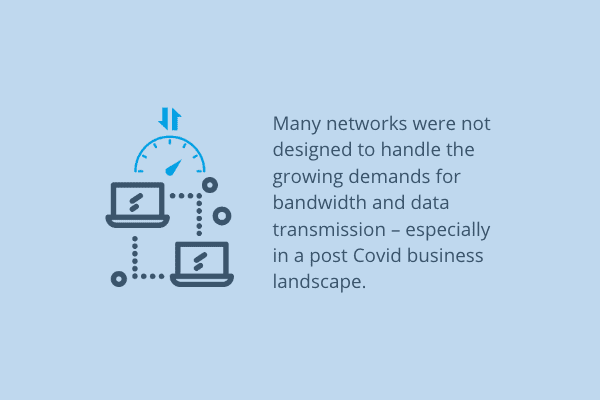
Networks may lack the infrastructure needed to support the number of users. The network may have inadequate or outdated equipment to handle the amount of data being transmitted.
When a network becomes congested, it can lead to several problems for users. Key among them:
• Slow response times
• Slow download speeds
• Unresponsive or unstable network
• Loss of customer data or employee work product
• Limited access to the internet or throttled data transmission
How Can You Mitigate Latency Caused by Network Congestion?
Identify the root causes of your network congestion. You may have a lot of unnecessary junk applications and bandwidth hogs running in the background. Your network manager should be able to identify and manage resources to give business critical traffic priority.
Consider upgrading network infrastructure to support the growing demands for bandwidth and data transmission. This may involve adding more bandwidth, upgrading network equipment, or implementing new technologies to manage network resources.
Another way to mitigate network congestion is using cloud hosted services. Cloud hosting allows organizations to store data and run even enterprise level applications from remote servers, rather than from local onsite servers.
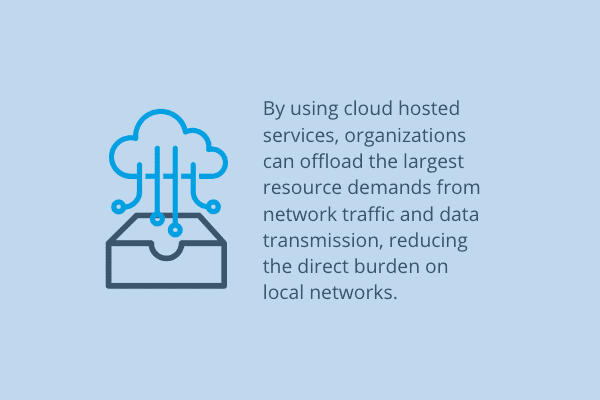
Are Cyber Security Risks Posed by Network Congestion?
Network congestion can make it difficult for security programs to detect and respond to cyber security threats, even if the network is not congested as a result of an attack.
For example, if security programs are running on the same network as other applications and services, the increased traffic may make it more difficult to detect, identify, and respond to credible threats.
Congestion can even mask a DoS (Denial of Service) attack allowing bad actors to exploit vulnerabilities within your network to their advantage. Congestion can allow them to remain unnoticed by both your users and your security protocols.
It’s critical to monitor and manage network congestion especially if you transmit or store sensitive customer health or financial data as part of your ordinary course of business.
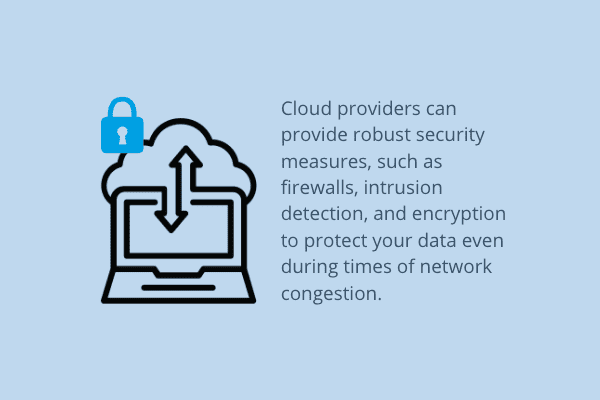
Can Network Congestion Affect Productivity and Customer Experience?
When a network becomes congested, it can slow response times, throttle download speeds, and cause delays in data transmission. This makes it difficult for employees to access the information and applications they need to complete their assigned tasks, leading to decreased productivity.
Whether a task involves accessing a large file or trying to collaborate with colleagues or clients, network congestion can cause delays leading to miscommunication and misunderstandings.
In addition to the direct impact on productivity, network congestion can also have indirect effects, such as causing frustration and stress, decreasing their overall morale, and job satisfaction which can lead to increased absenteeism and employee turnover.
Network congestion can also have indirect effects on productivity and profits. Customers may seek alternative products or services due to delays which, in turn, negatively impacts your organization’s business and financial performance.
How Can Cloud Services Decrease the Issues Caused by Network Congestion?
Network congestion can cause a variety of problems for organizations, including slow response times, slow download speeds, and delays in data transmission. These problems can lead to increased security risks, and decreased productivity, lower customer satisfaction, and reduced marketplace competitiveness, all of which can impact an organization’s human resources, reputation, and bottom line.
Organizations should always take necessary steps to monitor and manage network congestion. However, there’s no reason to take on the capital costs associated with modernizing your existing servers, network components, or devices.
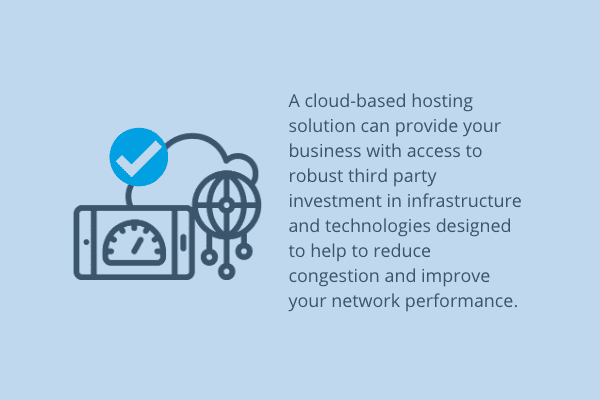
We Have Experts Available to Answer Your Questions About Network Congestion
Interested in finding out how partnering with an award-winning cloud hosting provider can help you achieve your business goals while reducing your overall technology costs?
Our trained team of cloud computing experts can help by answering all your questions about industry guidelines and compliance standards.
We’ll demonstrate how to use efficient cloud-based storage and processing solutions in your business to improve your security, productivity, and profitability.
Let us demonstrate exactly what CyberlinkASP can do for you – using your own data and workflows.